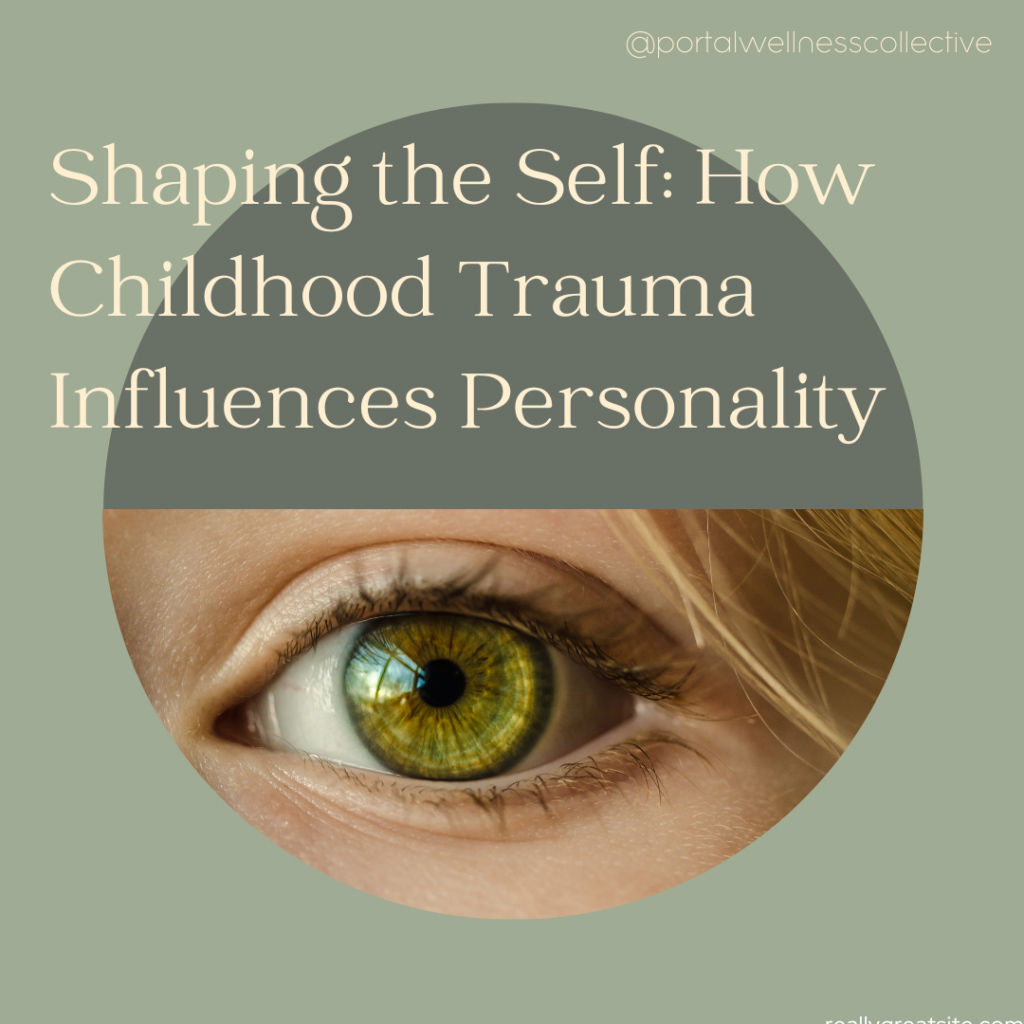Childhood is a formative period that molds the very essence of our personalities, influencing how we perceive ourselves and interact with the world. Unfortunately, for those who have experienced childhood trauma, the impact on personality development can be profound and far-reaching. In this blog post, we will explore how childhood trauma shapes personality, examining the ways in which traumatic experiences can shape core traits, coping mechanisms, and interpersonal behaviors, and how survivors can reclaim agency in the process of healing and self-discovery.
If you are looking for guidance in healing from childhood trauma take a look at our trauma specialists.
1. Impact on Core Personality Traits:
Childhood trauma can leave indelible imprints on a person’s core personality traits. Survivors may develop a heightened sense of vigilance, constantly scanning for potential threats, or exhibit increased sensitivity to rejection and criticism. On the other hand, some may adopt a defensive or avoidant stance to protect themselves from further emotional pain. Chronic trauma responses over time come to look like personality traits. For example emotional outbursts and anger can lead someone to be perceived or perceive themselves to be “an angry person” or someone might believe themselves to be “shy” when in reality they have had to be less visible in order to protect themselves from harm.

2. Attachment Styles and Interpersonal Relationships:
Attachment styles formed in early childhood significantly impact how individuals form and maintain relationships throughout their lives. Childhood trauma can lead to the development of insecure attachment styles, such as anxious or avoidant attachment, influencing how survivors approach intimacy and emotional connection. The way we behave or interact in our relationships impacts how we and others define our personalities. Read more about how your attachment style impacts your relationship.
3. Emotional Regulation and Coping Mechanisms:
Childhood trauma can profoundly affect emotional regulation, leading to intense emotional reactions to stress and triggers. In the absence of healthy coping mechanisms, survivors may develop maladaptive strategies, such as dissociation, self-harm, or substance abuse, as a means to manage overwhelming emotions. When we are in a chronic state of hyperarousal or dissociation our connection to self and our ability to express our authentic self is muted or inaccessible. This can lead people to conflate their survival mechanisms with who they are in a permanent way. Read more about how trauma impacts our ability to regulate our emotions.
4. Formation of Defensive Personality Traits:
 To protect themselves from the pain of past trauma, some individuals may develop defensive personality traits. These traits, such as emotional detachment, perfectionism, or aggression, act as protective shields to cope with the vulnerability they experienced during their traumatic past. These traits become pervasive in how we see ourselves and approach situations. They become ingrained in who we feel we are.
To protect themselves from the pain of past trauma, some individuals may develop defensive personality traits. These traits, such as emotional detachment, perfectionism, or aggression, act as protective shields to cope with the vulnerability they experienced during their traumatic past. These traits become pervasive in how we see ourselves and approach situations. They become ingrained in who we feel we are.
5. Impact on Self-Perception and Identity:
Childhood trauma can significantly influence self-perception and identity formation. Survivors may internalize negative beliefs about themselves, feeling unworthy of love or success. As a result, their sense of self may be characterized by low self-esteem, self-doubt, or a pervasive feeling of being fundamentally flawed. We are developing our personality, identity, world view, and self concept during this critical time, when that period is overshadowed by trauma, trauma and our identity development become intermingled. This can make it difficult to distinguish what is trauma and what is you.
6. Complex Post-Traumatic Stress Disorder (C-PTSD):
Childhood trauma, especially when chronic and severe, can lead to Complex Post-Traumatic Stress Disorder (C-PTSD). Unlike PTSD, which results from isolated traumatic events, C-PTSD stems from prolonged trauma and can manifest in disturbances in self-concept, emotional regulation, and interpersonal relationships. You can learn more about understanding unhealed childhood trauma here.
What even is personality? You might ask. Good question! There are different theories of personality formation and what constitutes as personality. You can read more here.
7. Reclaiming Agency and Healing:
Understanding how childhood trauma impacts us is the first step toward healing and reclaiming agency. Survivors can seek support through therapy and counseling to process their past experiences, challenge negative beliefs, and develop healthier coping mechanisms. Part of the therapeutic process of healing from childhood trauma is unpacking it’s impact on our self concept and moving forward with a self concept that is less entangled with our trauma responses. Want to prepare to heal your childhood trauma? Read more about how to start, and what to expect.
Childhood trauma can exert a profound influence on the development of personality, shaping core traits, attachment styles, and coping mechanisms. Survivors may carry defensive personality traits and experience challenges in self-perception and forming healthy relationships. However, through self-awareness, professional s upport, collective care, and a commitment to healing, individuals can reclaim agency over their personalities and build resilience, opening the door to a more authentic and fulfilling life.


